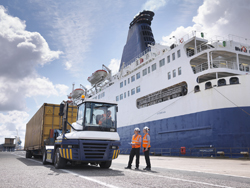Shipping to foreign markets brings new life to your equipment
Pre-owned equipment is increasingly sourced from and sold to foreign markets, which makes cross border shipment a necessary part of giving assets a second or third life. One step that might seem straightforward but can cause severe reputational and financial damage if not managed well, is clearing the buyer and making sure they are not on any exclusion lists to ship cross-border.
In addition, buyers must use assets for their intended purpose. In the US, hard laws states that it is mandatory for organizations to “clear their buyer”, whereas in the EU this is more of a market standard, without real financial penalties if organizations inadvertently sell equipment to a buyer on the exclusion list.
